'I ran away to France to keep my baby'
- Published
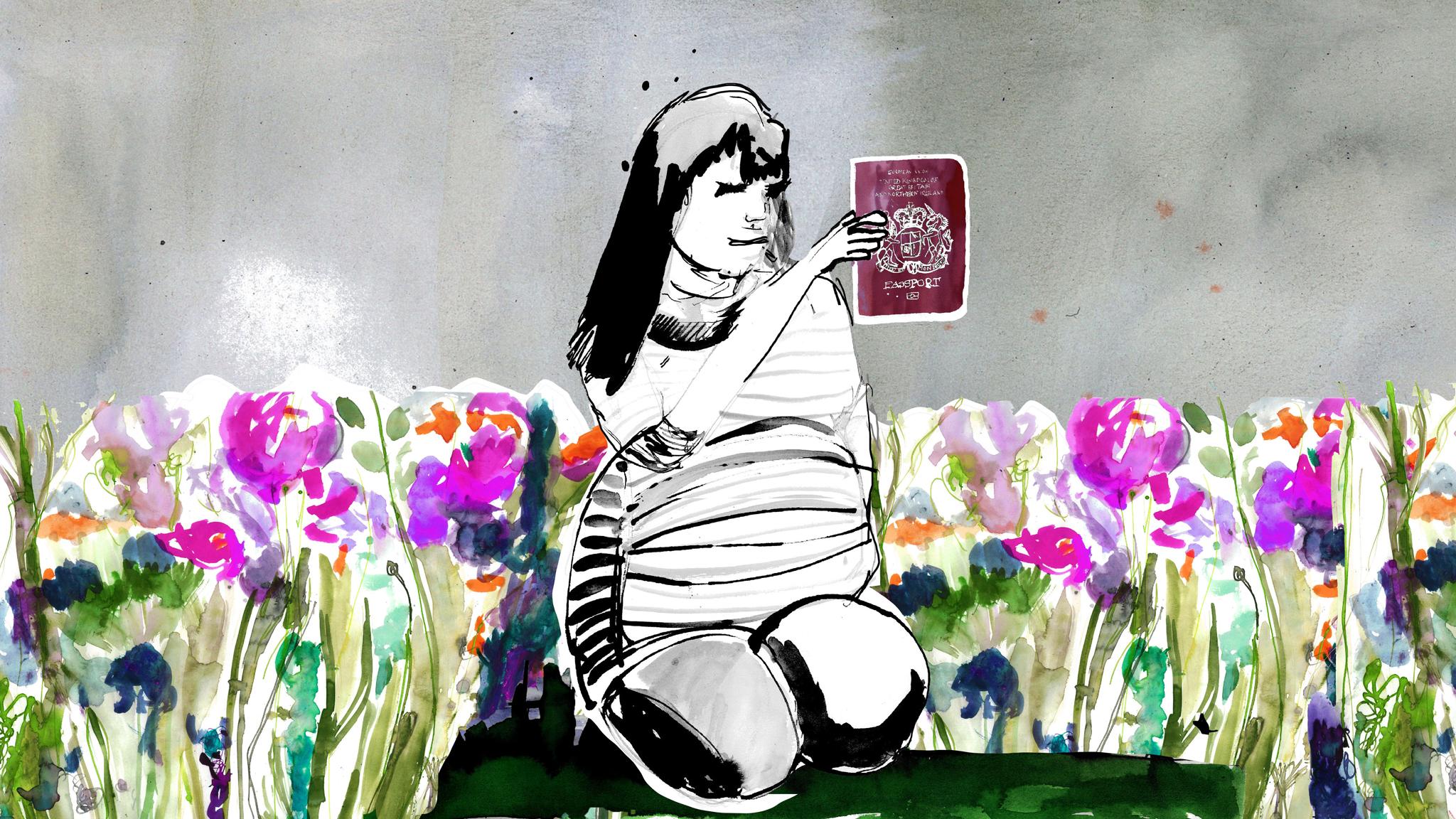
Every year a number of pregnant women flee the UK in an attempt to stop their babies being taken into care. In 2015, Zara was one of them. With her baby due in days she packed a small bag and left everything behind. But once she had crossed the Channel, things went badly wrong.
There's a photograph of Zara in a garden in France, holding her passport in front of her huge belly.
She's looking proud. The passport signifies freedom - she has taken back control. And soon she will give birth to a child that she's hoping she'll be allowed to keep.
A week earlier Zara had been sitting in her living room in England, scouring the internet. Thirty-seven weeks pregnant, she had begun to doubt that social services would allow her to keep her baby. Her plan had been to work with them this time, to convince them that she was capable of being a mother. But they had not given her a Yes or a No and the baby was about to arrive.
Zara was already well known to social services. Her first child had been taken into care when she was 16, at a time when she was suicidal, she says, and had been asked to leave her foster home. Her second child was taken two years later, while she was in an abusive relationship with an older man.
"Removal is just like losing a child. You feel compelled to be a mother and there's a child-shaped hole in your heart that needs filling," she says.
"I've never really recovered."

Find out more
Listen to Zara (not her real name) telling her story on Woman's Hour at 10:00 on BBC Radio 4 - followed by a discussion with child protection experts
You can also catch up online, or download the Woman's Hour podcasts

But a few years had elapsed before she became pregnant with her third child, and this one she thought she might be allowed to keep.
"When I became pregnant for the third time it was a new beginning. I thought it was OK to move on and start again. I was living in hope," Zara says.
"I wanted to be the mum I was never allowed to be, because of abusive relationships and my volatile family situation."
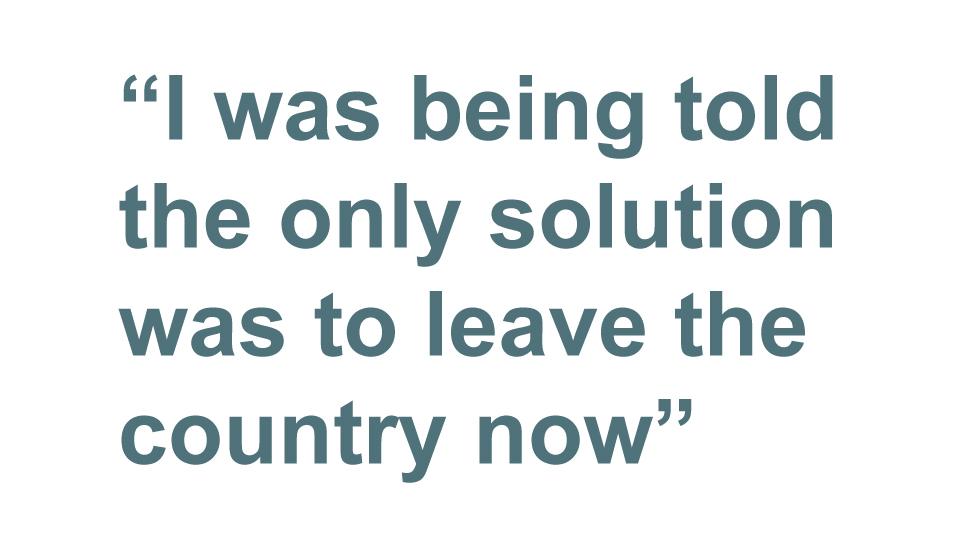
She hadn't told her family about her pregnancy. The only people she felt she could speak to were strangers online - hundreds of them, in Facebook groups set up to allow people to vent, support and advise each other on social services and child removal.
These strangers fuelled Zara's anxieties and made her situation seem hopeless, she says.
"I was being told that my child would be removed and the only solution was to leave the country, and leave now," she says.
So when Zara was invited by a British woman in one of the Facebook groups to stay with her in France, outside UK jurisdiction, she seized the chance.
"She offered me a job and accommodation, and sold me a new life," she says.

Within four hours, Zara was in London taking her seat on a Eurostar train. She only had a small bag. She'd packed things for her baby, stuffed in enough underwear to last a week and found space for one change of clothes.
"It was absolutely mental and horrible. My heart was pounding and my head was a mess," she says.
"I didn't understand what I was doing, it was robotic. Pack, book my ticket, check, double check.
"Up until then I was fighting to keep my baby in the UK, but then there was a shift. It was huge, drastic, frightening and life-changing."
After accepting the woman's invitation and booking her ticket, she was advised to contact a man called Ian Josephs.
Once a councillor in the UK, now a wealthy resident of Monaco, he runs a website where he campaigns against forced adoptions. He offers advice to people dealing with social services, or the family courts. He also sometimes provides financial help to families who run from the UK to countries such as France, Cyprus, Ireland and Spain. And for many this makes him a hero - testimonials on his website thank him for his assistance.
He said he would reimburse Zara's travel costs; if she showed him proof of social services involvement, travel receipts and evidence of her pregnancy, the money would be transferred once she was in France.
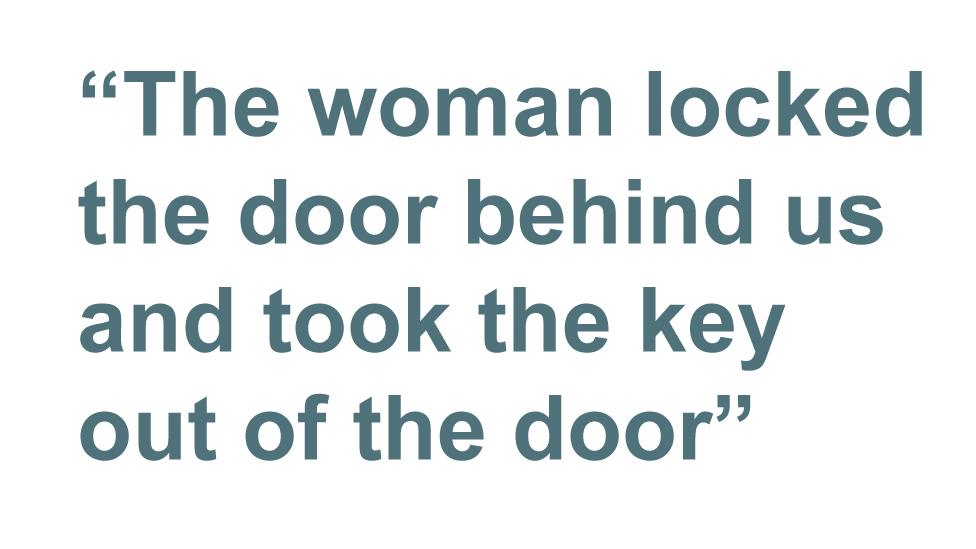
When Zara arrived at Paris's Gare du Nord station, the woman she had met online was there to greet her. It turned out she was pregnant too. They hugged as though they were old friends.
It was the height of summer and they set off on a long journey along "cute" country roads. Then the car came to a halt.
"We stopped in the middle of nowhere. I thought we were taking a break, but was told the barn in front of me was my new home," Zara says.
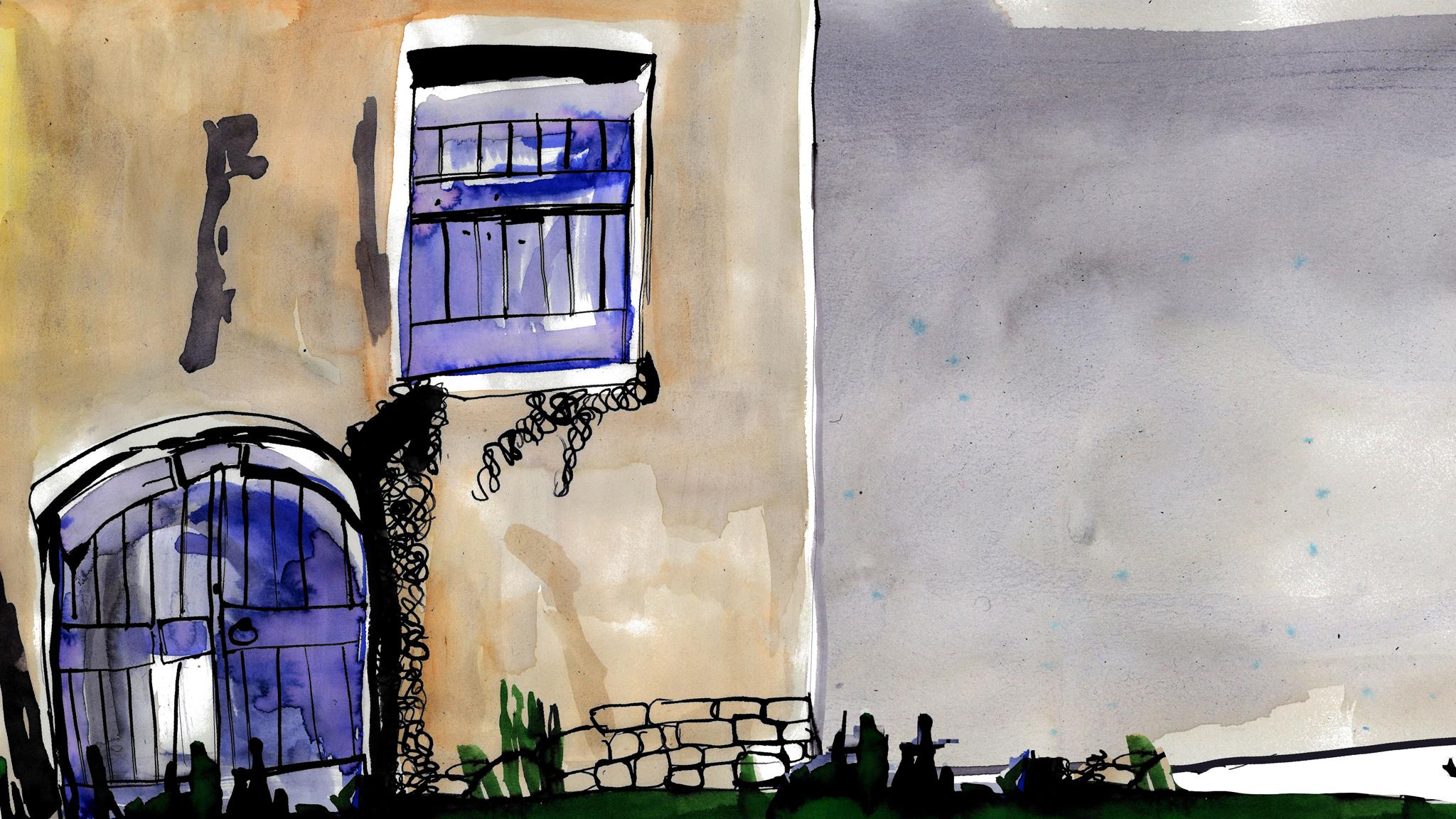
There was one small bedroom with a bunk bed. That was occupied by another heavily pregnant young British woman called Kelly. On the journey from the station, Zara had been told she was "lazy" and "always needed to be shouted at".
"I was allocated one of two sofa beds in the living-room-cum-second-bedroom. The woman who was also expecting, her partner and two-year-old daughter would be my roommates - all of them sharing the other sofa bed. I was shocked.
"But when the woman locked the door behind us and took the key out of the door, I thought, 'Oh no.'"
Zara felt extremely vulnerable. She still hoped for the best, but was also intimidated.
Money was needed for food, so she gave it. The woman arranged for Zara to be checked at a hospital, so she handed over her European health insurance card. Then, when asked for her bank card and passport, she handed those over too, but quickly regretted it.
"I was never left alone. The woman was volatile and she'd fly off the handle at the smallest things," Zara says. "The situation was scary and demeaning. I didn't ask questions, because I knew there were consequences and I wasn't prepared to find out what they were."
Then, on the fourth day, Zara did it again - she fled.
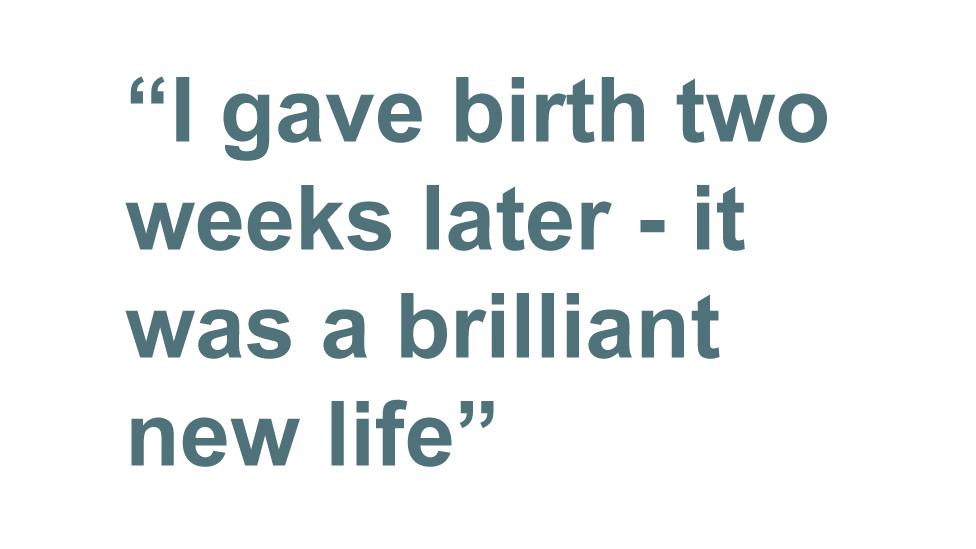
"The woman was on the phone in the garden and her handbag was on the sofa. I asked Kelly to keep watch and grabbed the keys and my passport. I even grabbed Kelly's passport. Her face went white. She said she wanted to come with me, but was too scared.
"I didn't even look back when I got out of the house. I found a rundown petrol station and I hid behind the pumps," she says.
From there she hitched a ride and then made contact with the police, who helped her find an old childhood friend in France.
"It's from that moment I was safe and my baby was safe," Zara says. It's the moment the treasured photograph of her holding her passport was taken.
"I gave birth two weeks later. It was a brilliant new life."
She says the French authorities monitored her at first, but later closed her case saying they had no concerns for her child's safety.
After a year, though, Zara missed home. She began to think about returning to the UK even though she knew it was risky. "I had proved myself in France and I thought I could come back to the UK and prove myself here," she says.
In reality she couldn't. Her escape across the Channel had only increased the authorities' concerns.
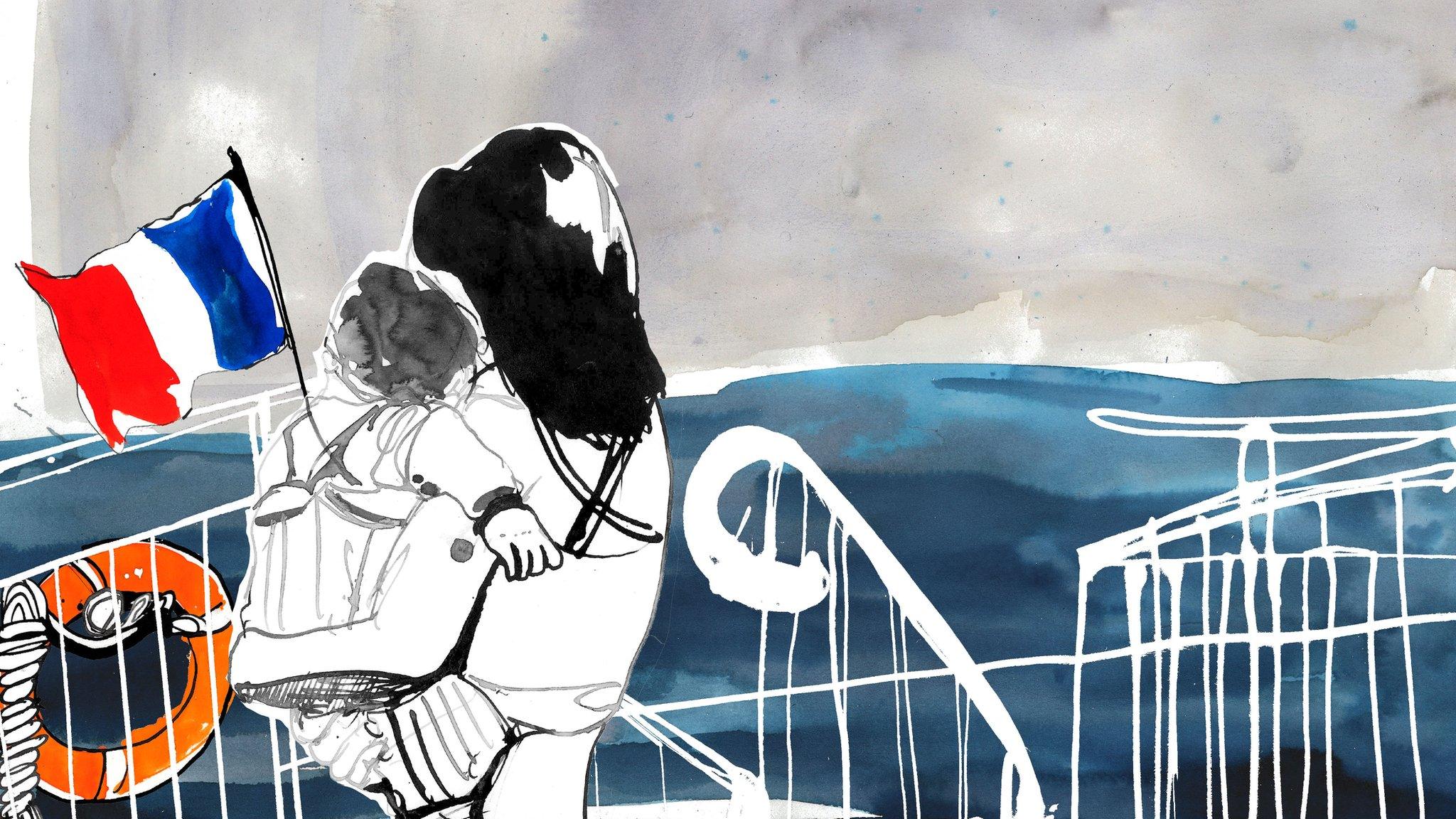
Zara arrived in the UK in the same way she left - secretively. Her stepmother only knew she was back when she opened the door and saw her standing there. But she says someone must have alerted the authorities; before long police and social services arrived, and her third child was removed.
"How could I be a good parent in one country and not in another?" Zara asks.
"I can't understand that. This is what haunts me."

"It is clear more parents are being given advice to run. I wouldn't have seen this 10 years ago," says Sarah Phillimore, a barrister who specialises in family law.
On her blog, she catalogues her concerns about what she calls a world plagued by "sinister exploitations".
"From what I've been told, people are at risk of being taken advantage of financially and sexually. It is extremely worrying," she says.
But she blames the British authorities too, arguing that they have created a "serious crisis" in social work - one that often leaves social workers without time to establish the trusting relationships that are needed when dealing with people who are "frightened by a system they don't understand".
And if families think they will be treated with greater understanding abroad, in some cases they may be right, she says.
"Every European country has a mechanism for non-consensual adoption; only the UK uses it with such enthusiasm. Families have the perception that places like France are perceived as more sympathetic and supportive - so they flee."
Once they have fled, they can be "preyed" on, as she puts it.
"I've been saying for years, I am worried that a child or mother has to die before anyone does anything."

Advice and support
Mothers apart from their children (Match), external
Your children may be taken into care, external - a "parents' pack" from the Association of Lawyers for Children

Sarah Phillimore is highly critical of Ian Josephs, arguing that his actions encourage women to flee, and thereby put themselves at risk.
But Ian Josephs insists that he advises pregnant women not to leave the UK unless they can support themselves. Reimbursing their travel costs "must in fact decrease the risk of being stranded as well as penniless since they could use these funds to return home to the UK", he says.
"I believe there can never be any justification for taking a baby at birth from a mum who has never been convicted of a serious crime. Every baby deserves to stay with its mum despite wild predictions of 'future emotional harm' made by social workers and judges," he told the BBC.
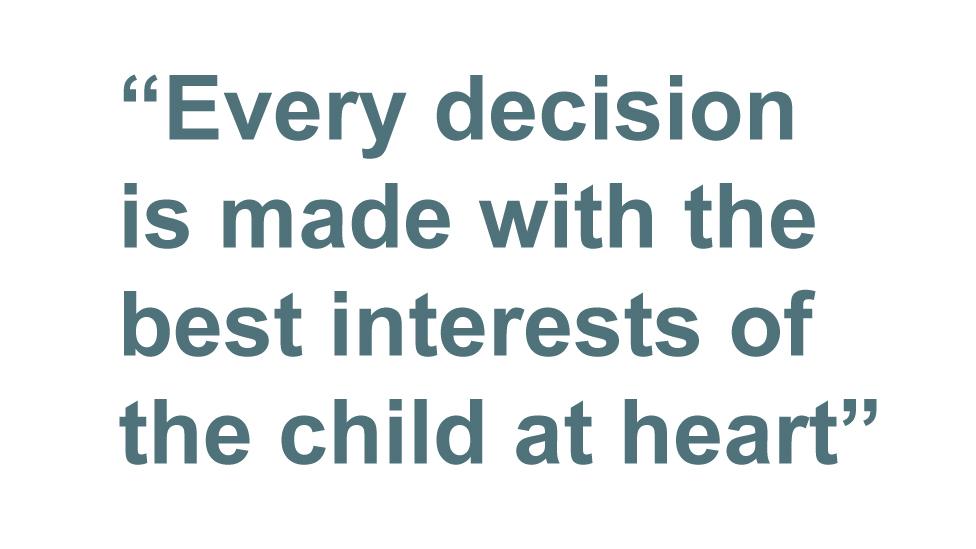
"You cannot blame mothers who flee to avoid forced adoption of their babies by strangers and I am very happy that I have helped to save a few babies from that grisly fate!"
The number of children in care in the UK has risen steadily over the last 25 years, while the number of newborns subject to care proceedings increased from 15 to 35 per 10,000 live births between 2008 and 2016.
But the minister for children and families, Nadhim Zahawi, said in a statement: "Every decision regarding taking a child into care is made with the best interests of the child at its heart… and the ultimate decision to remove a child from his or her family rests with the independent courts."
He added: "There are more full-time equivalent social workers than ever before, which means there are more dedicated people on the front line to offer much needed support to some of the most vulnerable children and families in the country."

It has been more than two years since Zara's return.
Her living room walls are sprinkled with pictures of her children. Even though they are being looked after by others, she is allowed to visit.
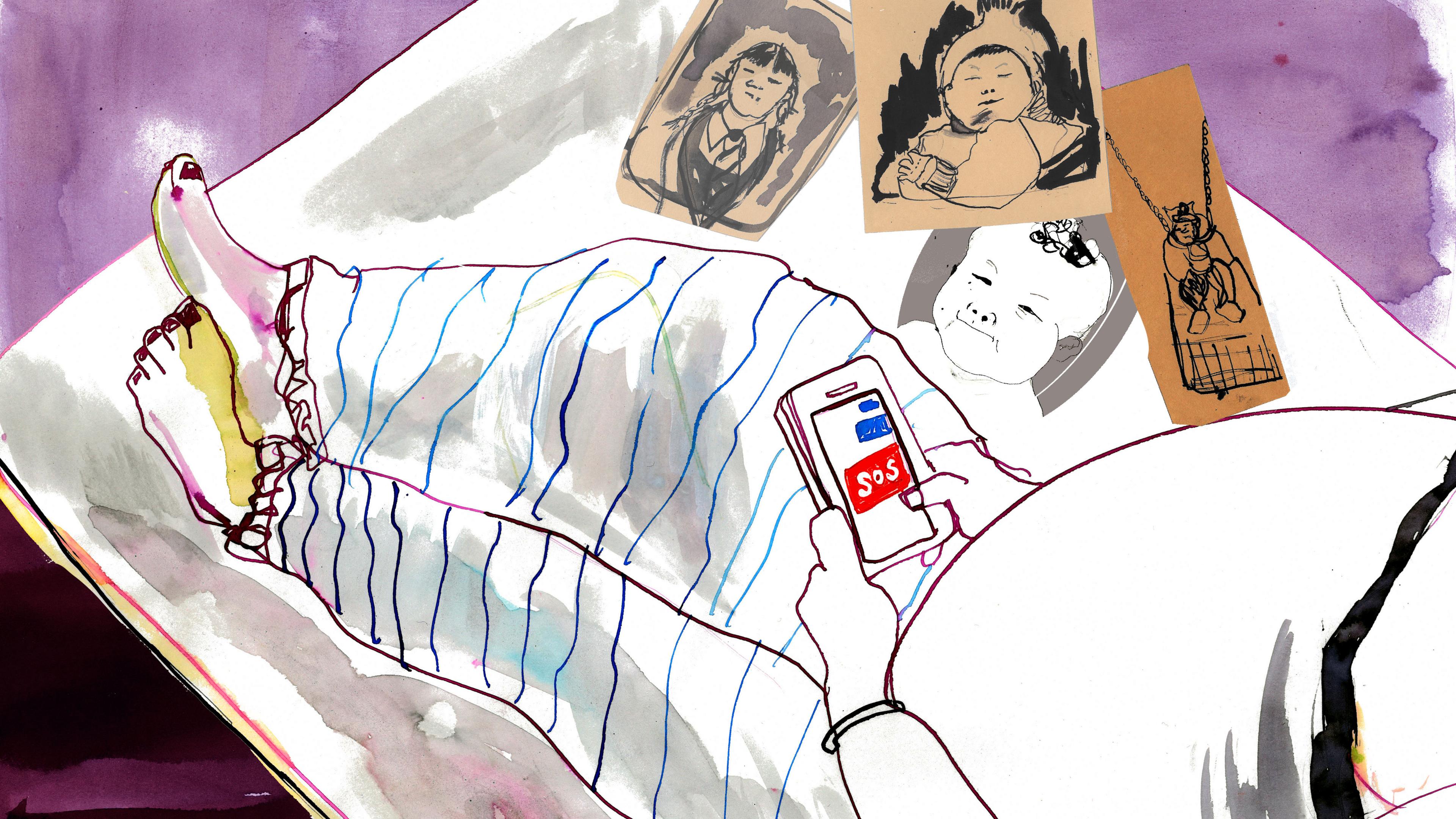
She readily admits that she has made bad choices, and she has a message for others in her situation.
"My first mistake was posting my life on social media forums and asking for help," she says.
"Fight your battles here, don't run away. If I hadn't fled my child may not have been taken from me and I wouldn't have been labelled a flight risk. I wish I had never gone.
"I am sharing my story so someone else doesn't make the mistakes I made. Don't turn to people online who are going to give you bad advice. Don't be bullied into making decisions that you never wanted to make in the first place."
Zara and Kelly are pseudonyms
Illustrations by Katie Horwich
You may also be interested in:
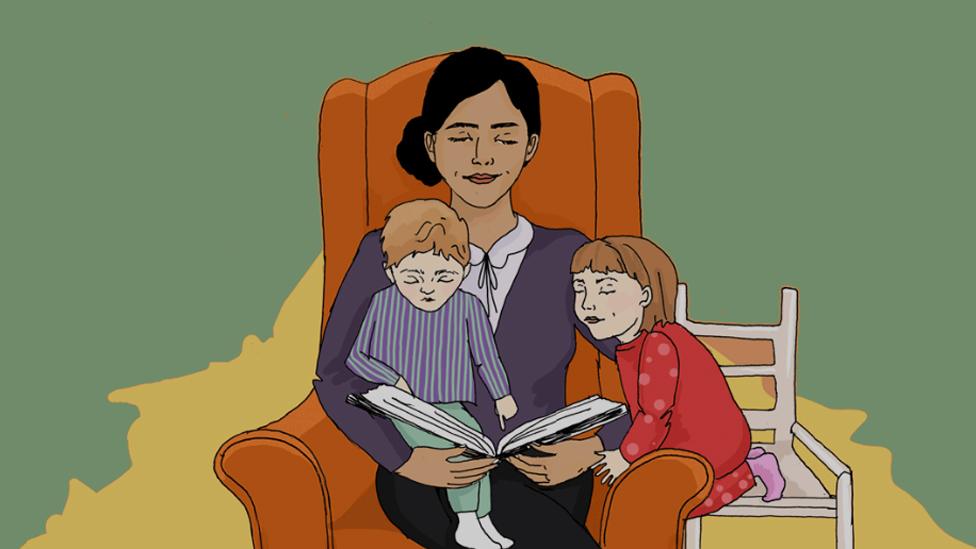
One true story. Two young children. A family is being shattered - can a new one be created?
Join the conversation - find us on Facebook, external, Instagram, external, YouTube, external and Twitter, external.
